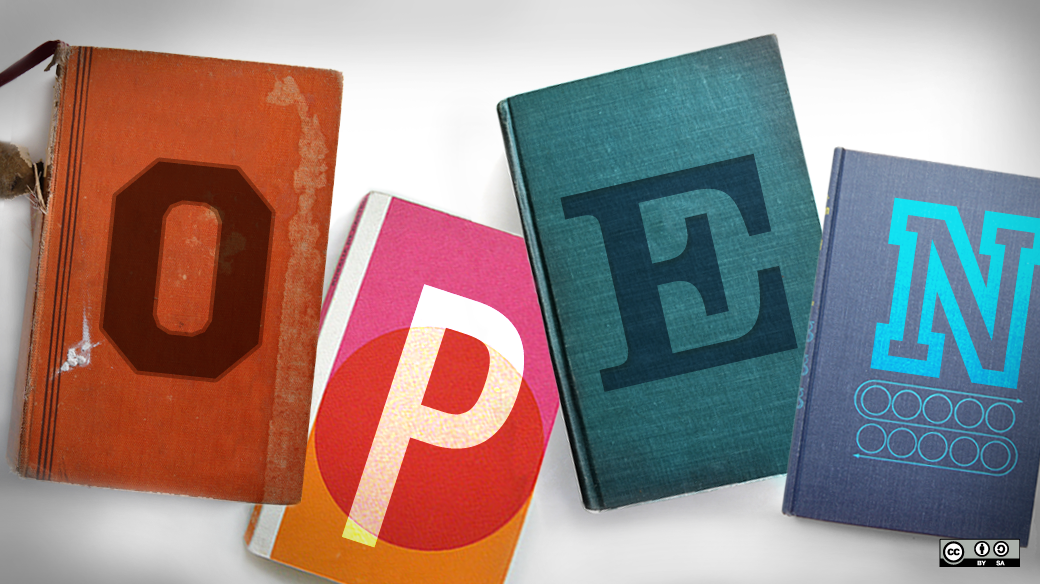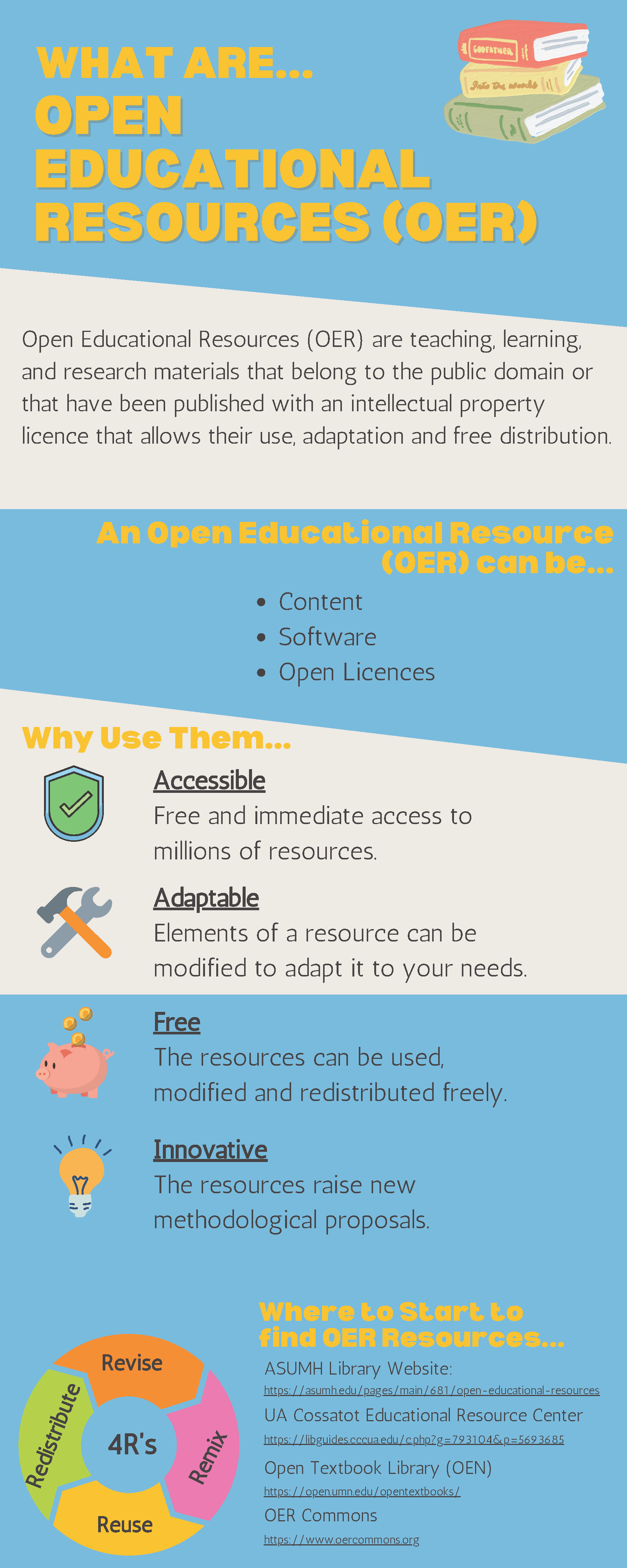Open Educational Resources

Find OER
Open Textbook Library : Collection of open textbooks sourced by the Open Education Network based at the University of Minnesota
OpenStax : Collection of open educational resources hosted by Rice University
LibreTexts : Collection of subject-specific libraries of open educational resources in the sciences, humanities, business, medicine, and more
MERLOT : Curated online learning and support materials and content creation tools hosted by California State University Long Beach
SkillsCommons : Workforce training materials for use with skilled trades instruction created by a partnership between the U.S. Department of Labor and California State University's MERLOT
MyOpenMath : Providing rich algorithmically generated assessment for mathematics and other quantitative fields to support the use of free, open textbooks
PhET : Interactive, research-based science and mathematics simulations created in partnership with the University of Colorado
GCFGlobal : Offers free training in technology skills (MS Office, etc), work skills, and core education skills; created by the Goodwill Community Foundation
Mason OER Metafinder (MOM) : Federated search engine scanning mutliple OER platforms to find content; created by George Mason University Libraries
OER Commons : Digital library of open educational resources hosted by ISKME
OASIS : Open content search engine from SUNY Geneseo's Milne Library
DOAB : Directory of Open Access Books
DOAJ : Directory of Open Access Journals
Create OER
Creative Commons : Global nonprofit organization that enables sharing and reuse of creativity and knowledge through the provision of free legal tools
OER Commons : Provides professional development and training in OER and hosts the Open Author creation tool
Authoring Accessible OER : Collection of tools and methodologies to assist faculty in creating open online course content
OER Tools for Publishing: Sourced by the Open Education Database, these are resources that can help in publishing and developing OER initiatives
Understanding Creative Commons Licensing : Compiled by the British Columbia Open Campus
Learn More About OER
Getting Started with OER : Introductory guide from University of Arkansas Cossatot, leading the state in OER use for higher education
Faculty Guide to OER : Resources geared toward faculty OER utilization, from University of Arkansas Cossatot
Iowa State University Guide to OER : Subject-specific guide to curated open educational resources
University of Michigan Open Guide : OER listing with content arranged by course type
OER Benefits and Advocacy : Studies and research to introduce the advantages of using open educational resources
Introduction to OER : Course from Open University that introduces the basic of OER
Benefits of Open Pedagogy
Introduction to Open Pedagogy : University of New Mexico Libraries
Toward Renewable Assessments : Benefits of open pedagogy approach to assignments for both students and education as a whole
Open Pedagogy Notebook : Perspective on the benefits of open pedagogy when teaching for trades professions
What an Open Pedagogy Class Taught Me About Myself : Student perspective on open pedagogy
The OER Starter Kit: Open Pedagogy : Iowa State University open textbook
Important Info
What is OER?
The term Open Educational Resource (OER) refers to educational resources such as textbooks, lesson plans, quizzes, syllabi, instructional modules, simulations, etc. that are freely and perpetually available for use, reuse, adaptation, and sharing. These are resources that reside in the public domain or have been released under an open or creative commons license with no or limited restrictions

Important Info
What is OER?
The term Open Educational Resource (OER) refers to educational resources such as textbooks, lesson plans, quizzes, syllabi, instructional modules, simulations, etc. that are freely and perpetually available for use, reuse, adaptation, and sharing. These are resources that reside in the public domain or have been released under an open or creative commons license with no or limited restrictions

Contact Info
Campus OER Represtatives
Tina Bradley -Library Director
Heather LaGoy -Library Technician
Cathy Leppold -Virtual Learning Coordinator
Robin Navel -Instructional Designer
Theressa Walker -Faculty - Business / Management
Contact Info
Campus OER Represtatives
Tina Bradley -Library Director
Heather LaGoy -Library Technician
Cathy Leppold -Virtual Learning Coordinator
Robin Navel -Instructional Designer
Theressa Walker -Faculty - Business / Management

